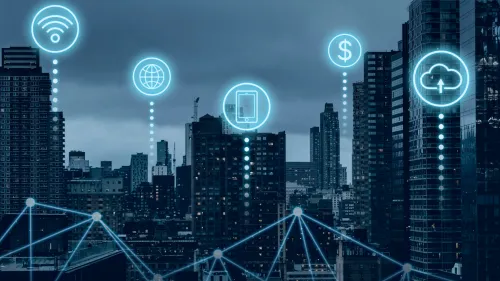
Asian Telcos Sustainability Index inches up to 34 but lags behind other regions: BCG
European telcos garnered an overall score of 62 points.
The sustainability index of Asian telcos rose by one point to 34 in 2021, lower than the median for the overall score globally at 53, according to Boston Consulting Group.
In its Telco Sustainability Index 2021 report, the overall score of telcos from Europe and other locations rose by six points to 72, European telcos improved by four points to 62, whilst telcos from North America grew by four points to 48.
“Telco executives have become far more aware of the importance of sustainability, thanks largely to increased pressure from stakeholders,” BCG said.
“Yet like companies in other industries, telco operators have been slow to practice what they preach. Research shows that more than 80% of executives across industries say their company has a formal ESG program in place, but less than 50% say their company is performing well against its ESG metrics,” it added.
BCG said the overall ICT industry is expected to contribute around 3% of the total carbon dioxide emissions.
The sustainability index is based on four indicators namely: commitment to sustainability, carbon dioxide (CO2) emission and energy intensity, circular economy and waste, and customer enablement. A total of 21 telcos were involved: eight from Europe, four with headquarters in Europe and some operations outside the region, four from North America, and nine from Asia, including Australia.
European telcos were at the forefront in better reporting and in focussing on reducing emissions reductions and waste management.
Aside from this, Europe and North America reduced total energy consumption and total energy required to transport data, according to BCG. Their energy use declined by 22% and 5%, respectively, whilst Asia was up by 4%.
Operators from Europe also saw the share of renewable energy in their total usage to 72% in 2021 from 60% in 2020.
Meanwhile, Asia and North America led in the decline in waste intensity with their total in 2021 declining 28% and 24%, respectively, whilst Europe saw a 1% rise. Europe led in recycling ration, with its recycled-waste share up to 81% from 72%, whilst Asia rose to 58% from 57%, and North America to 54% from 48%.
On customer enablement, BCG said the number of telcos calculating customer enablement factor rose to 11 in 2021 from 8 in 2021, whilst the number of those providing transparency on the calculation of customer enablement factor increased to 10 from five. There were also 10 telcos that launched green bonds in 2021 from none last year.
“The telco industry’s execution on sustainability goals has not matched its commitment,” BCG said.
Challenge for telcos
Telcos would need to accurately measure their emissions and materialise their commitments to reduce carbon footprint, according to BCG. This would require “a more systematic, automated, repeatable approach to establishing an end-to-end GHG emissions baseline, including upstream and downstream emissions across the entire telco supply chain.”
BCG said Scope 3 emissions or emissions from the purchase of goods and services, transportation and distribution, and business travel, amongst others, outweigh Scope 1 or direct emissions and Scope 2 or indirect emissions from purchased electricity steam, heating and cooling for own use.
Gathering data on emissions they are directly responsible for and those caused by the products and services they sold will allow them to offer services with defined emissions profiles to customers who aim to track and reduce their own footprint.
“It can help providers overcome the challenge of motivating all their employees to live up to corporate sustainability commitments and embrace them when they execute their daily work. A win-win for all concerned,” it said.














